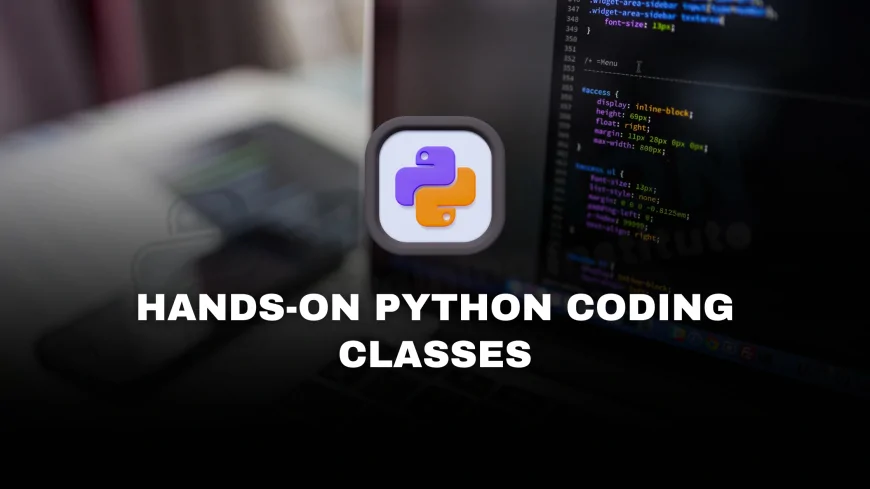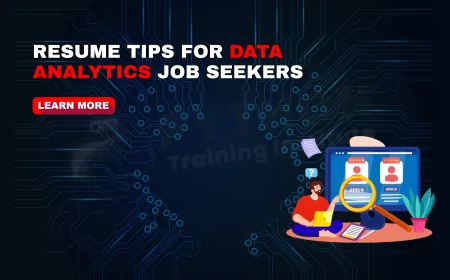Hands-On Coding with Python in Pune | Learn Python by Doing – Hands-On Classes in Pune
Startup founders in Pune: Learn Python for rapid MVP development, automation, data insights, web apps & cloud deployment. Hands-on training, real-world projects, flexible schedules & expert mentors.

Table of Contents
- Introduction
- Why Python for Startup Entrepreneurs?
- Core Skills Covered
- Pune’s Training Landscape
- How to Choose the Right Course
- Spotlight: WebAsha Technologies
- FAQs
- Conclusion
Introduction
In Pune’s vibrant startup ecosystem, Python is the most popular language for founders and small teams. Its simplicity, expansive libraries, and versatility make it ideal for building MVPs, automating workflows, collecting analytics, and deploying cloud or web solutions fast. This guide covers why Python matters for entrepreneurs, key capabilities to master, top training options in Pune, how to select the right format, and more.
Why Python for Startup Entrepreneurs?
- Fast MVP development: Rapid prototyping using Flask or Django to launch basic apps or dashboards.
- Scripting & automation: Automate operations like sending emails, scraping, reporting, or batch processes.
- Data & user insights: Use Pandas/NumPy to analyze customer behavior, logs, or metrics.
- Scale gradually: Switch from standalone scripts to web services and containers.
- Low entry barrier: Python’s gentle learning curve helps non-technical founders code MVPs themselves.
- Community & ecosystem: Thousands of open-source plugins, libraries, and tools for startups.
Core Skills Covered
- **Python fundamentals**: variables, data structures, loops, functions.
- **OOP & modules**: writing reusable code, structuring logic.
- **Web frameworks**: Flask / Django essentials—routes, templates, APIs, authentication.
- **Data tools**: Pandas, NumPy, Matplotlib—processing analytics and visualizing results.
- **Automation & scripting**: web scraping (BeautifulSoup), email automation, Git integration.
- **Database usage**: SQLite/MySQL integration, ORM usage (Django ORM/SQLAlchemy).
- **Deployment**: Docker basics, cloud deployment to Heroku/AWS, simple CI/CD flows.
- **Project work**: build projects like scrapers, email bots, dashboards, or minimal web apps.
Pune’s Python Training Landscape for Entrepreneurs
Here’s a breakdown of institutes in Pune offering Python training tailored to startup needs:
WebAsha Technologies
- Hands-on Python bootcamp covering full-stack (web, data, ML) with real-world projects and strong startup relevance—ideal for entrepreneurs building MVPs or automation tools .
-
Offers flexible batches, including weekends and evenings, with session recordings—perfect for founders balancing work and building ventures .
-
Industry-expert trainers (8–12+ years) from companies like IBM, Airtel, and RedHat provide personalized mentoring—valuable for entrepreneurs needing guidance on implementation .
-
Placement and project support portal with 1,500+ placements per year—helpful for founders looking to recruit initial team members or interns .
How to Choose the Right Course
Align with Startup Goals
-
Focus on programs that cover MVP Web Apps (Flask/Django), automation scripts, and data analysis (Pandas, NumPy) — essential for rapid iteration and decision-making.
2. Depth of Curriculum & Tools
-
Ensure the course includes:
-
Web frameworks: Flask or Django for app development
-
Automation skills: Scraping, scripting, email bots
-
Data capabilities: Pandas, NumPy, visualization
-
Deployment readiness: Docker, Heroku, cloud basics
-
Look for hands-on modules that mirror startup tasks.
3. Real-World Project Integration
-
Prioritize courses offering capstone projects, mini-projects, or POCs — such as dashboards or automated pipelines.
-
Courses like WebAsha and Udemy's Coding for Entrepreneurs use this approach effectively.
4. Flexible Scheduling & Recorded Sessions
-
Startup founders benefit from evening/weekend batches with session replays — enabling learning alongside building.
-
Institutes like WebAsha and Prwatech offer this flexibility.
5. Quality of Mentorship & Community
-
Seek courses led by industry or startup-experienced trainers who can guide project challenges and MVP decisions.
-
Personalized feedback and peer learning opportunities are valuable.
6. Placement & Network Impact
-
Founders may want interns or co-founders post-course — check if the institute hosts hiring portals and placement support.
-
WebAsha, UV Technocrats, and others facilitate these networks.
7. Budget, Duration & ROI
-
Compare costs — most Pune programs range from ₹15k to ₹80k.
-
Evaluate duration vs depth: Quick bootcamps (4–8 weeks) vs full-stack programs (3–6 months).
-
Look for EMI plans or founder discounts — many institutes provide flexible financing.
8. Post‑Course Support & Community
-
Courses offering access to alumni forums, follow‑up mentorship, or project review sessions can greatly enhance continuous learning.
-
Feedback from founders points out the value of ongoing networks for troubleshooting and growth.
Comparison Table
| Criteria | Ideal Features for Startup Founders |
|---|---|
| Curriculum | Web MVP + Automation + Data + Deployment |
| Projects | Real-capstone POCs mirroring startup use-cases |
| Delivery | Weekend/evening + recordings + flexibility |
| Mentors | Startup/industry experienced, hands-on feedback |
| Placement Network | Intern hiring, team building support |
| Cost & Duration | 4–24 weeks, ₹15k–80k, EMI/founder discounts |
| Alumni & Support | Community access, follow-up help, network value |
Spotlight: WebAsha Technologies
- Blended Python/data/web courses with live project modules (chatbots, dashboards, automation).
- Strong placement portal—useful to hire immediate teammates locally.
- Flexible recording, weekend options, practical deployment focus perfect for founders.
FAQs
1. I have no programming background—can I learn Python?
Yes—many courses (Prwatech, Henry Harvin) start with basics before introducing real-world scripts.
2. How long before I can build a real app?
Typically 6–12 weeks of regular training with ongoing projects can equip you to build functional MVPs.
3. Should I learn Flask or Django first?
For minimal MVPs, Flask is lightweight. Django is ideal for structured, extensible applications.
4. Do I need data skills as a founder?
Yes—knowing Pandas or NumPy helps bootstrap analytics, user insights, and A/B testing.
5. Will courses help me automate tasks?
All courses offer scripting, and some (ITpreneur, Besant) focus strongly on automation tools.
6. What about cloud deployment?
Most top programs support Heroku/AWS deployment and Docker basics (Edureka, WebAsha).
7. Can I learn part-time?
Absolutely—most institutes offer weekends or evening batches for busy founders.
8. Is placement support relevant for entrepreneurs?
Yes—helps find initial hires or co‑founders after your course.
9. What about code structure and best practices?
Focus on OOP, modular design covered in Wisdom Sprouts, Henry Harvin, and project-driven courses.
10. Do I get certificates?
Yes—certificates from UV Technocrats, Edureka, Henry Harvin, etc. are provided.
11. Is Python expensive?
Most courses range between ₹15k–₹80k, with flexible EMI and starter-friendly packages.
12. Are beginner internships included?
Yes—Henry Harvin offers guaranteed internships with partner companies.
13. Will I get help with real code bugs?
Top courses provide 1:1 doubt resolution and peer reviews (Python workshops via Cyber Success).
14. What tools will we use?
Participants use IDEs (VS Code), Git, virtualenv, Docker, REST frameworks, and simple CI tools.
15. Do these courses teach mobile apps?
Mostly web-based, but Python backends can serve mobile frontends via REST APIs.
16. Is there classroom-based training?
Yes—institutes like Besant, Cyber Success, Prwatech offer in-person Pune classes.
17. How do I get support after course ends?
Many offer alumni access, resume support, and community Q&A post-course.
18. What if I build a non-tech startup?
Python skills can still help automate marketing, finance, analytics—even without full-scale apps.
19. Can I convert scripts into web tools?
Yes—with Flask/Django you can wrap scripts into web UI and collect user input easily.
20. What's the first step to enroll?
Shortlist 2–3 courses, attend demo sessions, review sample projects, and align with your startup timelines and use‑cases.
Conclusion
Python equips startup entrepreneurs with essential tools to move fast—from scripting backend logic to building lightweight web interfaces and automating operations. Pune’s training ecosystem offers varied programs catering to founders at different stages and budgets. When selecting a course, focus on hands-on work, flexibility, mentor background, and practical applicability. The right training can empower you to build your MVP, gather data insights, automate workflows, and even recruit your initial team effectively.
What's Your Reaction?
 Like
0
Like
0
 Dislike
0
Dislike
0
 Love
0
Love
0
 Funny
0
Funny
0
 Angry
0
Angry
0
 Sad
0
Sad
0
 Wow
0
Wow
0















